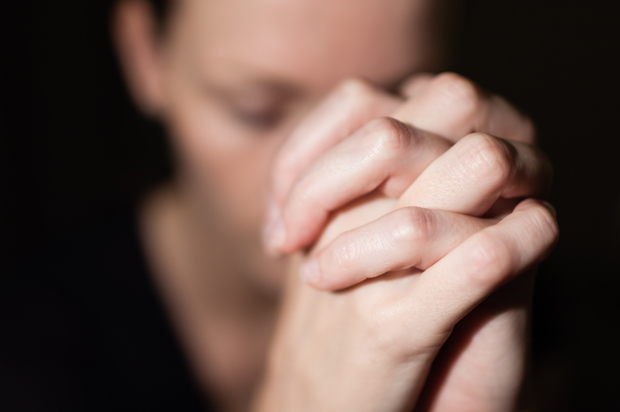I know it’s unusual for a cynical, abortion-loving member of the New York liberal media that’s trying to destroy America to say this, but — I am a Christian. Yes, I still have profound skepticism over the way that any large institution — like an organized religion — is run. No, I do not possess all the answers to what happens after we die. But I go to church. I fangirl over Pope Francis. And yet, in the darkest, most profoundly testing period of my life, if there was one phrase from friends, family and strangers that made me the most uneasy, it was this: I’m praying for you.
I pray, by the way. I pray every day. I have an ongoing conversation with the divine. Prayer is my time for self-reflection and expression of gratitude, even when the day has been very hard. My prayers also include plenty of mentions of people I love, and people who I know are going through rough times. But when I pray I try — sometimes with varying degrees of success — to not turn those prayers into a negotiation session, to not treat the God I believe in as a big wish-granter in the sky. And that’s how I would like to be prayed for in return.
When I had a fatal form of cancer and a real crapstorm of other stuff going down a few years ago, I had so many people reach out to say they were praying for me. I was on prayer lists in churches I’d never heard of. And I was, and remain, truly grateful. I felt love and intention as a cosmic force, wrapping me in warmth through the worst days. But I never believed in a God who treats human life like a change.org petition, an entity just waiting for the correct number of signers before he’ll grant a hoped-for outcome. Because that kind of God would be a real prat.
When you find yourself thrust into the community of the sick and the survivors and the ones who are maddeningly referred to as having “lost a battle,” you learn a few things pretty quickly. You learn that life is random. You learn that people who meditate and drink green juice die of disease, that children die, and that the religiously faithful do too. That’s why I bristle at that particularly arrogant brand of survivor, the one who chalks up having a successful outcome to forces other than luck and medicine. Trust me, or talk to an oncologist sometime. Whether it’s prayer or cutting out white sugar, those things may make you feel better and more in control, but they won’t affect your fate. And why would anybody want a God who plays favorites, who’s so capricious and easily flattered?
Near the end of my beloved friend Debbie’s life, I had a conversation with someone who insisted, fervently, that “a miracle” could still save her. I would have loved that. But the reality of her situation was that her illness had its own path, regardless of how desperately so many people wanted it to be otherwise. I knew that this person’s prayers would not change that. Yet I will confess that when my own daughter was in the emergency room this past winter in septic shock, my prayers were of a singular and urgent nature. Let her live. Please, let her live. It gave me comfort, in the middle of the night, as she lay in that little bed with tubes attached to different places in her body, to say those words. It was prayer that gave me someone to talk to, someone to cry to, throughout those long, hard, 36 hours before she stabilized. I was talking to a force that was, I believe, a kind of satellite in the universe to send up my love, and bounce it back down to her. But when the morning came, it was antibiotics that saved her life.
People who don’t believe in God — and I really have no interest in talking anybody into it, or praying for anybody who doesn’t want to be prayed for — often argue that no all-powerful force would allow the horrors in this world we are daily reminded of to happen. And many people who firmly believe in a traditional version of their faiths simply reply: IDK, ¯_(ツ)_/¯!
But when I let go of my vision of God as the Wonderful Wizard of Oz, my relationship with my faith gets exponentially more realistic. God is not some smug guy granting or withholding favor based on how pleased he is with my requests. He’s not a judge on a reality competition. I don’t have to come up with some clever life hack to coerce him to give me what I want. I can instead embrace a universal and unconditional love, I can tap into the grace that gives me strength when the days are hard, and gratitude for the things that are good. And when people say they are praying for me, I can hope that they are doing it as a gesture of compassion and support and communion in its truest sense and not as an item on a list of requests, so that I can reply in sincerity, “Thanks. I’m praying for you, too.”

